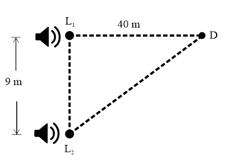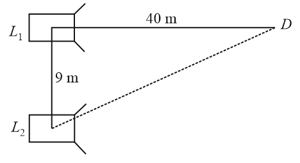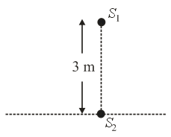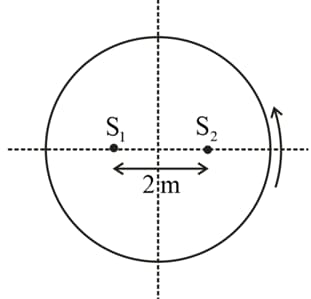Superposition of Waves
Superposition of Waves: Overview
This topic covers concepts, such as, Principle of Superposition of Waves,Interference of Sound Waves,Constructive Interference etc.
Important Questions on Superposition of Waves
What are the conditions for constructive and destructive interference?
What is changed by destructive interference of a sound wave?
What is destructive interference of sound waves?
What is destructive interference example?
What is constructive interference in wave optics?
What is constructive and destructive interference of light ?
What is constructive interference example?
What is constructive interference on string?
A wave represented by the equation is superposed with another wave to form a stationary wave such that the point is a node. The equation of the other wave is,
Two loudspeakers and driven by a common oscillator and amplifier are arranged as shown. The frequency of the oscillator is gradually increased from zero and the detector at records a series of maxima and minima. If the speed of sound is , then the frequency at which the first maximum is observed is

An observer receives waves directly from a source of sound distant in a big hall. He also receives waves reflected from the mid-point of high ceiling. The wavelength of sound for constructive interference to take place between two waves, must be
Two speakers connected to the same source of fixed frequency are placed apart in a box. A sensitive microphone placed at a distance of from the mid-point along the perpendicular bisector shows maximum response. The box is slowly rotated till the speakers are in line with the microphone. The distance between the mid-point of the speakers and the microphone remains unchanged. Exactly maximum responses (including the initial and last one) are observed in the microphone in doing this. The wavelength of the sound wave is,
Two waves are passing through a region in the same direction at the same time. If the equation of these wave are
,
then the amplitude of the resultant wave for is,
The loudspeakers and driven by a common oscillator and amplifier are set up as shown in the figure. As the frequency of the oscillator increases from zero, the detector at recorded as a series of maximum and minimum signals. What is the frequency at which the first maximum is observed? (Speed of sound )

are two coherent sources of sound having no initial phase difference. The velocity of sound is . No minima will be formed on the line passing through and perpendicular to the line joining if the frequency of both the sources is

State and explain the principle of superposition of waves.
Two-point sources separated by are radiating in phase with . A detector moves in a circular path around the two sources in a plane containing them. How many maxima are detected?

Statement-1: Two sound waves of equal intensity I produced beats. The maximum intensity of sound produced in beats is 4I.
Statement-2: If two waves of amplitudes and superpose, the maximum amplitude of the resultant wave .
